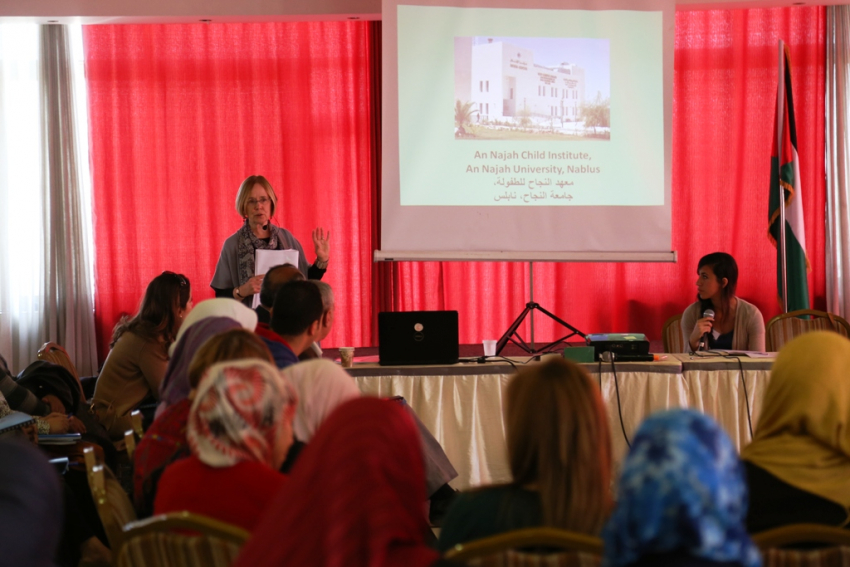
On 24 February, the Qattan Centre for Educational Research and Development organised a study day entitled 'The Education of Autistic Children in Palestine'. A number of specialists, academics and organisations working in the field took part in the day, which was supervised by Elaine Ashbee, a researcher from Birmingham University in England.
The event took place in the context of a long-term research project on autism, undertaken by the Centre over the last two years in co-operation with the Friends School in Ramallah and the Jerusalem based Princess Basma Centre; Ashbee worked on it as part of her doctoral thesis. The aim of the research is to identify best practices to support and improve education for autistic students in Palestine, how these students may be better integrated into schools, and what skills may be developed that will have educational benefits for students on the autistic spectrum.
Ashbee began the day by presenting a summary of the research, affirming the necessity of positive attitudes towards children with autism, especially that societies tend to view them negatively. Autism, she pointed out, is not a disease or a deficiency, but a fascinating global phenomenon experienced by 1 in 100 people.
During her presentation, Ashbee gave examples of scientists, lecturers, artists and writers with autism, who in spite of this characteristic managed to excel, producing books and works of art. She also pointed out the lack of precise data about autistic children in Palestine.
Ashbee also spoke about case studies encountered during her research trips to Palestine over the past two years, focusing on the role of schools and organisations working in the field in providing her with relevant research material.
Participants in the study day were then divided into six groups to discuss the concept of comprehensive integration and inclusive education. To guide the discussion, the groups were given three questions about priorities, co-operation and integration to answer: What must be done do develop the education of children with autism in Palestine? What ideas do you have about how to make this possible in Palestine? And in your opinion, what should the next step be?
